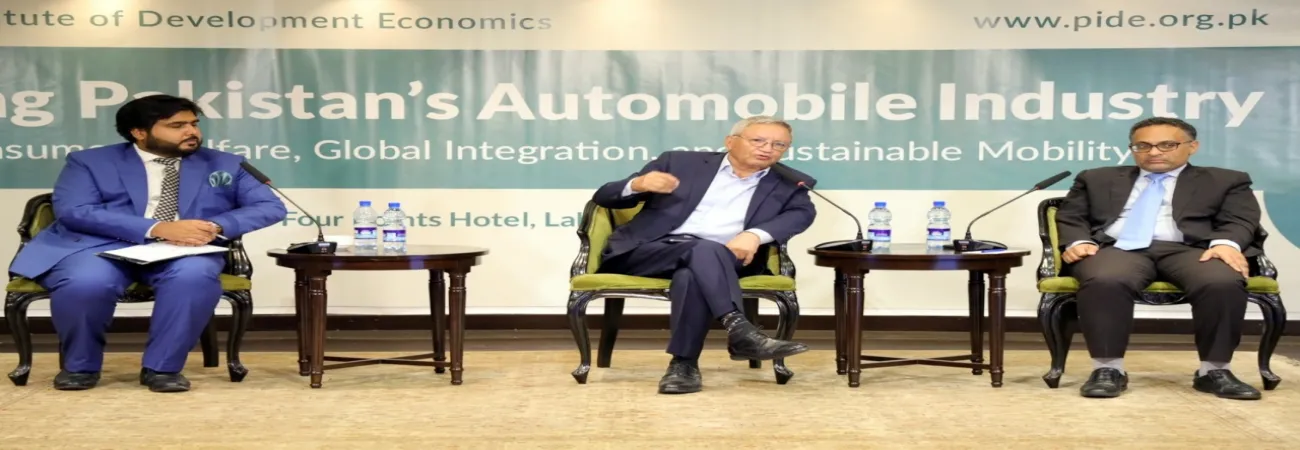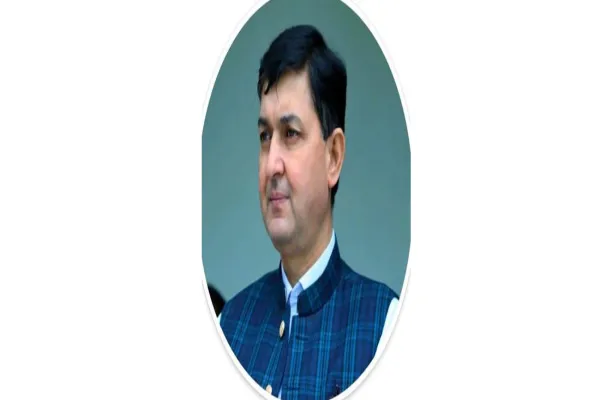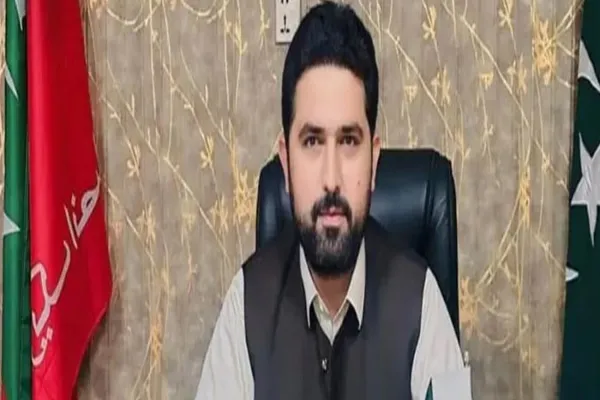i NEWS PAKISTAN
Pakistan Institute of Development Economics hosted a One Day Conference titled ‘Revitalizing Pakistan’s Automobile Industry: Moving towards Consumer Welfare, Global Integration & Sustainable Mobility’ here in Lahore. Representatives of Automobile Companies in Pakistan, Automobile parts manufacturers, policymakers and academicians participated in the conference sharing their experience and knowledge regarding the issues and the future outlook of automobile industry in Pakistan. The conference was well attended by a large number of students from the local universities as well. The discussion in the conference was focused on three sub-themes, Localization Obsession and Supply Chain Constraints, Policy, Reforms and Industry Development, and Electrification and the Future of Mobility. Extensive and in-depth analysis and views were shared on all the themes by the experts, while students also actively participated in the discussion sessions as well.
Dr. Nadeem Ul Haque, Vice Chancellor Pakistan Institute of Development Economics (PIDE) in his opening address to the conference expressed that the primary agenda of this conference is to explore why Pakistan's automobile industry is not progressing and to discuss strategies for its revitalization. The aim of our institution is the economic prosperity of Pakistan, and this conference is a step towards achieving that by focusing on the automobile sector. The key issues to address include the reasons behind the lack of exports from the automobile industry, the delayed introduction of hybrids and EVs, and the future of the industry in terms of research and development. Despite 50 to 70 years of protection, the sector has failed to export, which is a significant concern given the country's economic crisis. He further added that the discussion will focus on why the industry has not kept pace with global advancements, such as driverless cars, hybrid cars, etc., and why there is a lack of local R&D.
The objective is to have a constructive dialogue to develop policies and understand issues that will drive the development of Pakistan's automobile industry. Dr. Nadeem concluded his remarks by reaffirming PIDE’s efforts towards always taking new steps forward, aiming to conduct research and stimulate debate on important topics as the goal is to foster real, productive conversations that lead to actionable outcomes for the sector's growth and integration into the global market. Later, the PIDE team presented the findings of their ongoing research on the state of automobile industry in Pakistan and the future outlook. A second presentation focusing specifically on the potential of Electric Vehicles in Pakistan, as well as the challenges in its adoption were also presented by the PIDE team at the conference. The participants lauded the work done by PIDE and also the organization’s efforts to bring together all stakeholders for developing and promoting a unified reform plan for the revitalization of automobile industry in Pakistan.
The message from the conference was clear that Pakistan needs a policy shift if it wants to develop its automobile industry. The focus must shift from absolute localization of the industry to instead focusing on becoming part of the global value chain. For this purpose, it is important that local firms engage with foreign companies for not just capital investment but more importantly for technology and skill transfer. Without being competitive and innovative, the automobile industry cannot be expected to grow into a major global industry, which must be the goal for Pakistan. For innovation, the role of universities was cited as utmost important as major Research & Development support to the industry must stem from higher educational institutes.
Academia-industry collaborations are essential for futuristic innovations to resolve the challenges faced by the industry. Dr. Usman Qadir, Senior Research Economist at PIDE in his closing remarks expressed gratitude to all the attendees for their participation and feedback on this pressing matter. He also expressed the desire to furthering such deliberations and collaboration with industry experts and other members of the academia as well.
Credit: Independent News Pakistan (INP)









